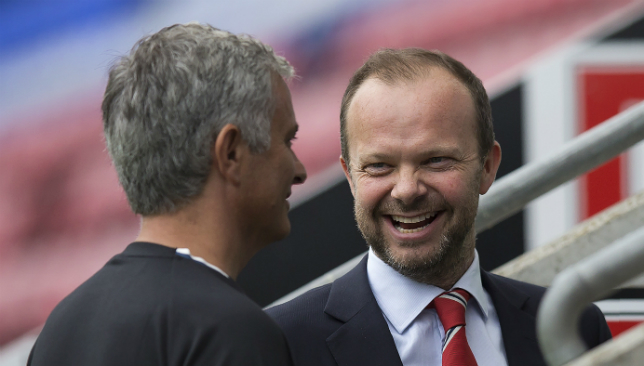
Amid all the doom and gloom regarding Manchester United‘s business this summer, one key transfer has largely been overlooked: the departure of chief scout Javier Ribalta.
The Spaniard arrived last summer as part of what seemed like an overhaul of United’s transfer structure to better fit the modern era, and, coming from Juventus, his addition was seen as a bit of a coup. That he left just 13 months later, reasoning that being the sporting director at Zenit St Petersburg was a better opportunity, is a damning indictment.
This is where Sir Alex Ferguson‘s influence can still be seen at United, if only indirectly. The Scotsman famously said that the manager has to be the biggest person at the club – and by and large, he meant that no player should wield more power than the boss, nor should any other club official be directing the manager’s decisions.
It was a reflection on the way football was changing, with player power growing and some club owners becoming more hands-on in their approach, reportedly going as far as directing who should be in a matchday squad or even a starting XI.
Ferguson, of course, would never have stood for that, and it’s not difficult to think he would have held a similar view of the modern set-ups with regards to transfers. It’s highly unlikely the legendary manager would have liked having a sporting director, or a “transfer committee”. He trusted that he had the backing of Martin Edwards, Peter Kenyon, and David Gill, United’s three chief executives during his reign as manager, and for the most part went out and got whichever player he wanted, to great success (although there were definitely a fair few misses).
Jose Mourinho may not share many similarities with Fergie in terms of playing style, but in this regard, there can be no doubt that he’s cut from the same cloth. Nobody is going to tell Jose what to do.
But while giving a manager control of transfers is a tried and trusted method, there has to be some amount of harmony with the board. Reportedly, when Mourinho presented United with a list of transfer targets this summer, not one player matched with the list Ribalta had drawn up.
That level of disconnect is galling. Not that they can’t disagree, but surely the two should have been working in concert to identify targets. If they were, then coming up with such disparate lists is inexplicable. If not, well, why did United even appoint a scouting director if he wasn’t going to be working closely with their manager?
Ribalta on leaving #MUFC chief scout role & heading to Russia: “I spent last year at Manchester Utd. After many years at Juventus, I decided to go there for a challenge. When this proposal from Zenit came I had no doubts because Zenit is really a very big name, a very large club"
— Simon Peach (@SimonPeach) July 31, 2018
And it makes just as little sense that Ed Woodward is essentially in joint-command of transfers alongside Mourinho. The basic structure – the manager identifying the players he wants, then telling the man in charge of loosening the purse strings – seems logical enough, but football has moved on from the days where the chief executive of a club is as involved on the football side of the club as the business side.
Woodward is not a football man. He’s a businessman, and in that role he’s done supremely well. United’s operating finances always look healthy, which means Woodward is doing his job. Fans may roll their eyes when Woodward makes statements regarding the commercial side of United, the sponsors they’re signing and the impressions they’re generating on social media, but that is exactly what a CEO of any business is supposed to be focusing on.
He can have conversations with Mourinho about which transfer targets are feasible, bring his negotiating skills to the fore in transfer discussions, and sanction any big spending, but in this day and age, that United’s equivalent of a transfer committee is the club CEO and the manager makes no sense.
This quote from Ed Woodward sticks in my mind as we approach the final few hours of the transfer window.
— Tom McDermott (@MrTomMcDermott) August 8, 2018
“If I answer that just very simply and candidly, playing performance doesn’t really have a meaningful impact on what we can do on the commercial size of the business.” #MUFC pic.twitter.com/ljvcbRiEiP
It only takes one disappointing summer to make that obvious, and this was it. The transfer market may have gone crazy, clubs may be overcharging United because of their ability to pay, players may be using them to get better contracts at their own clubs, but there’s no doubt that the Red Devils sticking to the old way of doing things has played its part.
Ribalta was meant to be the appointment who changed that, to bring the club into the modern era. As the Premier League transfer deadline comes and goes, his departure may be the bit of business United rue the most.